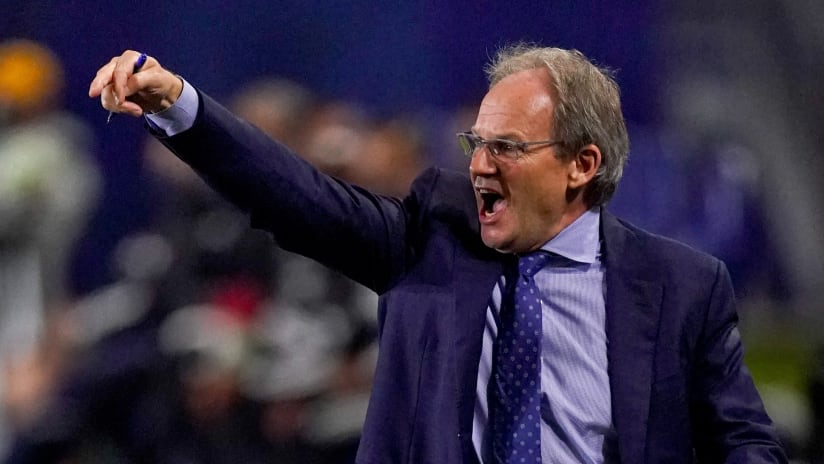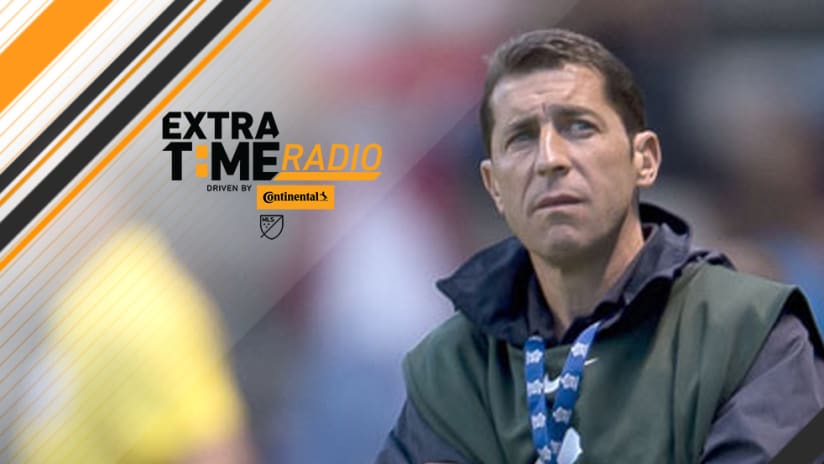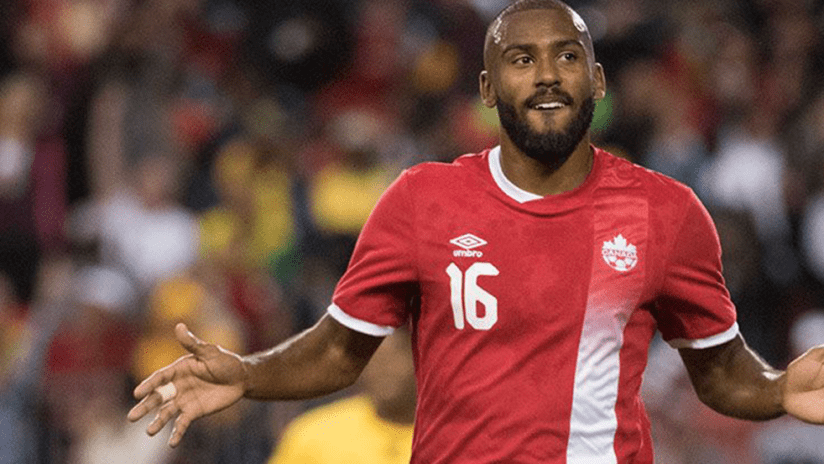I only see clearly what I remember.
– Jean-Jacques Rousseau
It's an age-old character in North American youth soccer: The charismatic expatriate coach who charms parents with big plans, a long (if murky) resume, and perhaps, most important of all, an ear-catching foreign accent.
Where did he play his professional soccer? When? How much and how well? For long, those questions were often posed, but easily evaded, especially if the coach had a bold scheme for improving the team, club or player at hand. Experience has always mattered, but in past years the depth and detail of a coach's experience often proved too difficult to pin down in the “Wild West” atmosphere of the US and Canadian youth scenes.
Many first-generation MLS players are now moving into coaching and front-office positions. At present, 15 of the league's 20 head coaches also played in it, with still more waiting in the wings.
But another crop of ex-players has quietly taken up roles at a potentially even more influential level. They're staffing youth academies across the league, carrying the lessons and experiences of their own careers into the task of grooming future pros.
Whether they were international stars or simply average squad players, their own exploits are entered in the public record for all to see, and they've traveled a long way along the path that lies ahead of the adolescents they're now coaching. And they are dreaming great dreams.
"I can tell you, without a doubt, that this generation that's coming up now is going to be much better than the current [crop] of senior players, in every state, all over the U.S." says Andre Luiz Moreira, a decorated Brazilian national teamer who now coaches the San Jose Earthquakes Under-14 academy squad. "Because this generation is going to play much, much better technically... I'm certain that this country is going to have that difference-maker in the near future."
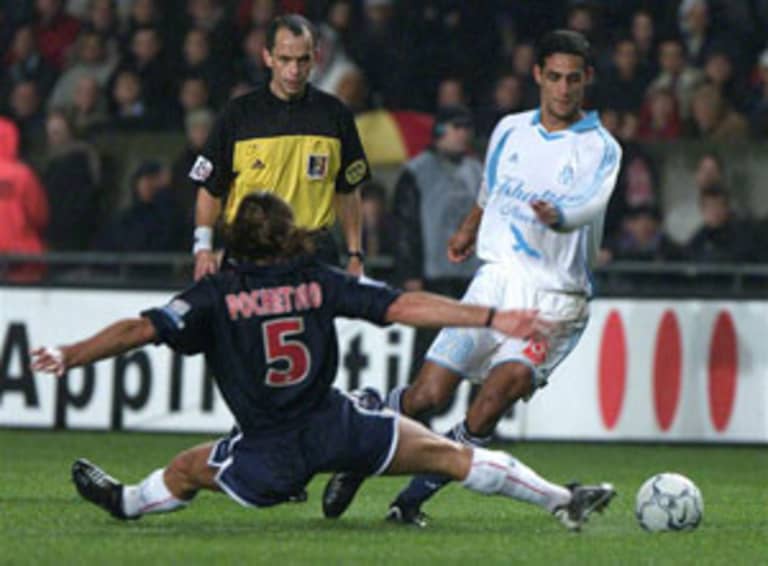
Andre Luiz in action for Marseille against PSG, eluding future Tottenham manager Mauricio Pochettino.
Jamie Smith helped the Colorado Rapids win an MLS Cup title in 2010, serving up the ball that Conor Casey scored in the championship game. Now he helps plot the course for the club's youth system, which has produced pros like Shane O'Neill and Dillon Serna.
“A lot of the players that I'm coaching right now in the academy system watched me play for the Rapids,” the Scotsman told MLSsoccer.com. “It's up to the players to determine their own pathway – we have a saying, that we like the players to be the protagonists in their own development. And as a coach, my job is to try and help guide them and be a part of that development, though it's the player that ultimately drives themselves. Having been a player myself, I think it carries some weight.
“It's a benefit in the sense that when I'm giving information to the players, it's not just a random coach who says, 'Yeah, I played professional and I played college and I played this and that.' It's someone the players actually watched, so they have a direct association with that coach.”
This scenario is present from coast to coast as MLS teams invest more and more into youth development.
“There's a definite effect – whether that's negative or positive, I guess we'll find out in about 10 years' time, right?” LA Galaxy Academy director Pete Vagenas wisecracked to MLSsoccer.com last week. “No, obviously when we're talking about development in this country, it's exciting time for everyone. Kids nowadays are exposed to this sport on so many different levels than say, my generation growing up.
“When we talk about setting standards, we are setting standards for these kids to become professionals, not just to succeed in the youth environment.”
All of the academy coaches MLSsoccer.com spoke to for this story emphasized that playing experience is not enough – youth coaching is a distinctly different craft from playing the game, and must be approached as such.
But a recognizable face can help drive home the hard lessons that await youngsters making the arduous climb towards a professional career.
“The fact that I played, I probably bring something different. That doesn't mean that I'm better, but … kids look at you with different eyes,” says Pascal Bedrossian, a onetime France youth international who played for the Chicago Fire in 2006-07 after a long career in his homeland. He now coaches in the Fire youth system.
“That doesn't mean that if you played, that you're a better coach. [Jose] Mourinho never played the game at a high level and he's an amazing coach," he continues. "Sometimes you have amazing players and they are not good coaches. So yeah, it helps sometimes to see the game – I believe it's more that you understand the kids better, the way that they think, how they feel. Because you were in their position and when something goes right or goes wrong in their mind, you can read that.”
After a colorful career in England and Italy, Danny Dichio joined TFC for their first three seasons. He scored the first goal in TFC history (and earned the club's first red card later in the same game) in 2007 before moving up the ranks at the Reds' well-regarded youth academy after retirement.
“Even before speaking to a lot of the kids, a lot of these younger players have watched me at some stage in their lives,” says Dichio. “So I think there's that instant kind of respect straightaway before I even start shouting at them. I try to be as level-headed with them as possible, and as human and humble with them as possible, because at the end of the day we're trying to push the younger players on.”
For all their big-money signings of the past few transfer windows, youth development looms large at TFC, and ex-MLSers figure prominently.
Head coach and longtime MLS standout Greg Vanney was already in charge of the academy when he added his senior team responsibilities last year. The Reds' youth teams also share their well-appointed training complex with the senior squad, gathering coaches and players from all levels of the club in one central location.
“When we're talking about facilities, what we have here at Toronto FC – compared to England, compared to where I grew up at Queens Park Rangers – is second to none,” says Dichio. “They have a real decent platform here to become a young professional, so then it really boils down to the individual and the attitude and desire that they want to put into it.”
While every youth academy's immediate task is to groom talent for a future with the first team, the inescapable presence of the EPL, La Liga and other competitions means that names like Vagenas and Dichio don't resonate like Messi or Ronaldo. And therein lies yet another challenge for youth development networks still finding their feet.
“Until MLS develops players of that level, you would always aspire to be the best. You wouldn't want kids aspiring to be third- or fourth- or fifth-best,” offers Tommy Wilson, the Scotsman who leads the Philadelphia Union's cutting-edge academy. “They might want to play with these guys in the Union first team, and fortunately all our kids get tickets for games and they go to the games and watch the games. But they still should admire the Lionel Messis and Cristiano Ronaldos... You look up to the best and try and get as close to that as you can.”
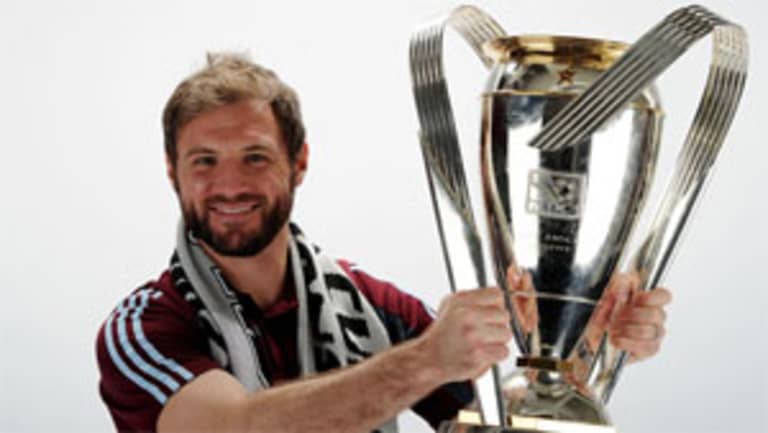
Jamie Smith helped lead the Rapids to their only MLS Cup, in 2010. He's now their Development Academy Program Manager and U-16 coach.
Notes the Rapids' Smith, “We've got a couple kids in our academy who [think] not just, 'I want to play in MLS,' but 'What's beyond MLS?' To be honest, if we can foster that kind of attitude, that's the direction we want to be going.”
Pro players are generally accustomed to being seen as role models. Yet those who enter the coaching field must be just as skilled in the craft of teaching, and that means starting on the bottom rung of another career ladder.
“The pro teams that also have academies, teams like San Jose, LA Galaxy, New York – I think the coaches at those places have to be people with experience on the pitch, who’ve also raised their level over time," says Andre Luiz, "overall people who understand how to talk to the kids and explain to them everything about what it is to be a pro soccer player, so they can gain confidence and feel comfortable.”
Most in the field see those tasks as too big for one, or even several, ex-pros on a given academy staff. A balanced blend of international and homegrown flavor seems to provide the best returns on the significant investments being made at the youth level.
“I think we have an advantage in that we really understand the culture in this country,” says FC Dallas Academy director Luchi Gonzalez, a Hermann Trophy award winner drafted No. 6 overall in the 2002 MLS SuperDraft. “I can relate to where the players are trying to go, [though] my pathway was quite different.”
At FCD, that mentality starts at the top. Head coach Oscar Pareja was a club icon as a player, then held Gonzalez's job at the head of arguably the league's most productive academy. Now, he and his staff – which is packed with youth development experience – have brought the kids closer to their senior counterparts than ever.
“Oscar, because he's lived in this country for so long, he understands the college system, he worked in the academy. So he understands what these guys are going through,” Gonzalez told MLSsoccer.com.
“There's a hallway between the first-team locker room and the academy locker room. And a lot of times you see our academy players in informal conversations with the pro guys: about lifestyle, about school, about relationships with their family, how they balance those things,” he continues, noting that four to 10 academy players join the FCD first team's training sessions on any given day.
“They're just sharing experiences. The culture and the environment molds these boys and teaches them how to become productive young men. Not just a pro, but someone that's going to be valuable for our community, our society," he said. "So I think the environment and the culture develops them. It's not one individual coach, it's the culture that teaches them and educates them.”
Dichio credits MLS's developmental partnership with USL for helping to bridge the gap between youth and pro level, and provide kids with a clearer route to the top.
“There is no separation from the first team to the academy or the TFCII [USL] team to the first team,” he says. “We have a lot of players that have gone through the different teams now, and they've developed all through the different age groups. So we want to continue building that. With the first team in the same building as our younger players, it gives them that objective to reach there one day, that dream.”
Andre Luiz explains that former Quakes defender Chris Leitch has fostered similar ties in San Jose since becoming the academy's technical director in 2012.
“That’s the way it works in Brazil, that’s the way it works in Europe,” he says. “It’s very important that the kids who play in our academy feel like part of the club. That they feel like they have an opportunity, some day, to become a professional. The link between the academy and senior teams helps these kids form a love for the club, to instill a desire in them to defend the colors of this club. If you go to Brazil, Argentina or Europe, the connections between the chiquillos [little ones] and the older teams are very strong, and the youngsters learn from the older players.”
That is the link that's been missing in North American youth development for so long--an institutional memory and understanding of infrastructure hard won over decades of survival. It is the bedrock of MLS 3.0, and it is being laid largely by a group of former pros who've lived it.
“Honestly, every one of my players expects a lot of me. Not only as a player or coach, but also as a person,” says Andre Luiz. “A lot of that has to do with what I’ve accomplished over my career. I think it helps them focus on their own paths – I try and share with them everything I’ve learned in all these different countries so that they can have the best shot possible at becoming a pro player.”
*Pablo Maurer contributed additional reporting to this story.

